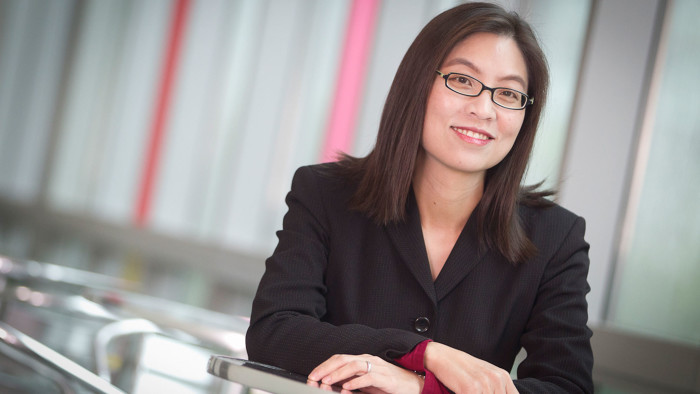Christie Napa Scollon

Simply sign up to the Business education myFT Digest -- delivered directly to your inbox.
Christie Napa Scollon is an associate professor of psychology at Singapore Management University, where she also teaches students at the university’s Lee Kong Chian School of Business.
Prof Napa Scollon has a PhD from the University of Illinois, Urbana-Champaign and has worked at Texas Christian University. Her research focuses on memory and emotion, culture and emotion and personality development.
1. When did you know you wanted to teach?
I’ve always had a knack for explaining things to people. I had several tutoring gigs in high school, including helping one student who was struggling with college algebra. I remember how rewarding it was to see them finally “get it” and how happy they were when they earned a final grade that was higher than they had previously thought possible.
2. What is the best piece of advice given to you by a teacher?
In my final year in college I was accepted on to a PhD programme in psychology. It was a respectable programme but it was not my top choice. My mentor and adviser Dr Laura King advised me not to go because I wasn’t really that interested in the specific research I’d be doing there. So I turned down the offer. A few months later, I read more research by Ed Diener, the American psychologist, [and] made it my goal to go to the University of Illinois to work with him. I spent the next two years working towards that goal.
3. Who are your business influences?
Last semester I taught a class on happiness and I became very interested in Zappos.com because of their mission to spread happiness both within the organisation and to their customers and suppliers. I think we tend to think of happiness as an individual enterprise, but workplaces and managers have a huge role to play. A good manager probably has as great a power to influence people’s happiness as does a good therapist.
4. What academic achievement are you most proud of?
That would probably have to be the publication of my dissertation in the Journal of Personality and Social Psychology. I wrote it and rewrote it at least three times and addressed every single issue raised by reviewers and editors until it was finally accepted for publication. The whole process was a long two years – that’s after getting my PhD.
5. What is your biggest lesson learnt?
That we really do get better as we age. I know it sounds like I’m just trying to console myself in middle age. Certainly if I said this to my younger self, that self would laugh. But I really do think we learn a lot just from being on this earth longer, from seeing and doing more and from coping with more. We gain confidence and humility at the same time.
6. What is the worst job you have had ?
None really. I have learnt important lessons from every job, big and small, good and bad.
7. What is the strangest thing you have done when teaching?
I sat in the dark for 15 minutes in class and meditated. Actually, it was a “loving-kindness meditation” for the whole class to participate in, but since my eyes were closed and I was really into it, students could have easily goofed off or napped. I think a small handful found it very powerful.
8. What advice would you give to women in business?
Have principles and stick to them. It is always worth doing the right thing, even if it is unpopular or costly.
9. If you could do it all again, what would you do differently?
I think there are an infinite number of ways to live a good life. Sometimes when I hear my colleagues talk about public policy or political science or when I attend a lecture outside my field, say on urban planning, I wish I could be an undergraduate again so I could study these fascinating topics. It’s not that I don’t like psychology, but there’s just so much out there that is interesting.
10. What is your plan B?
I would love to own and operate a bed and breakfast in a university town where I would get visitors from all over the place. I think it would be fun to be involved in all aspects of the business, from advertising to food preparation. Plus, I could take classes at the local university.
Comments